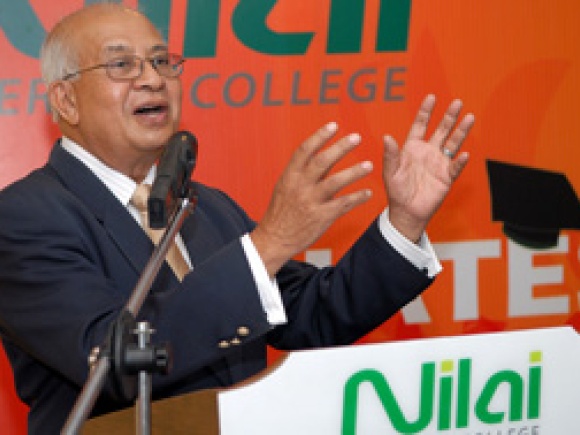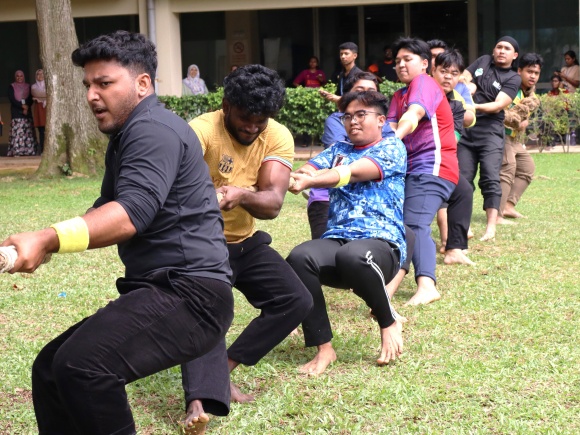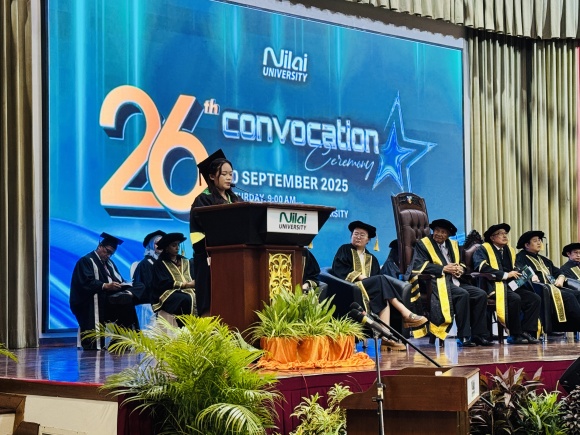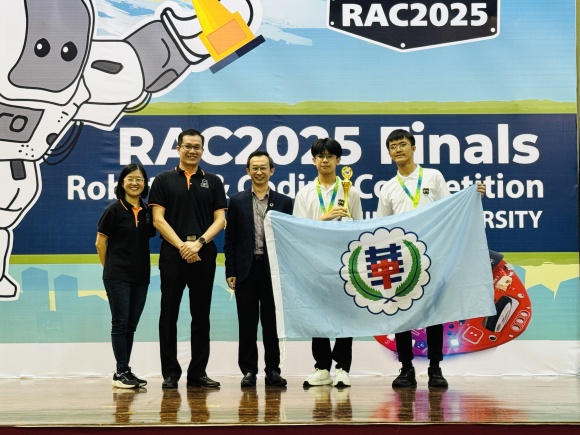"Education goes beyond the walls of classrooms and lecture halls," says Bishop Emeritus Datuk Denis C Dutton, who was speaking at Graduate@Today series of lectures at Nilai University College. "More often than not a good part of our education comes from our interaction with our lecturers, our fellow students and from the material we read."
As such, Dutton was keen to point out to the assembled lecturers that there are a number of ways for them to influence and shape the minds of their charges. His talk entitled "Inter-cultural sensitivity in an inter-cultural world" stressed that people make their choices and decisions based on various values (whether familial values, moral codes or religious creeds).
"As the world shrinks into a global village, it has become necessary to be more and more sensitive to the perceptions and needs of peoples of different cultures, in order for humanity to live peacefully in this global village," Dutton explained. He said he wanted to inspire people to examine the alternative processes involved in decision-making and to rise above being merely tolerant and move towards levels of acceptance instead. He hoped to find ways to "achieve resolutions to the issues and challenges that face a diverse and cosmopolitan civic society that is becoming increasingly borderless".
Nilai UC administrators have a vision of producing well-rounded graduates equipped to deal with modern working life as well as possessing the right moral fibre. The Nilai UC syllabus thus includes topics such as anthropology, critical thinking, integrity, ethics and cross-cultural sensitivity. Hence the administrators at Nilai UC have gone a step further and invited speakers of note to speak on the various subjects. Previous speakers in the Graduate@Today series of lectures include Dato' Dr Mohd Tap Salleh ('Enhancing Integrity through Education'), Tunku Abdul Aziz ('Enhancing Ethical Conduct Through Education') and Royal Professor Ungku Abdul Aziz ('Expanding Horizons through Reading').
Dutton divided the decision-making process into several categories – by proscription, subscription and contextual decision-making. Each sets limits on the way we behave and think and Dutton is hoping people will be able to shift their thinking beyond 'tolerance' and instead think of 'acceptance'. He says though many people are pre-conditioned to think their religion is the supreme truth and that there is but one God, Dutton said it is imperative that such thinking give way to acceptance of others with differing faiths. "Learning to accept others is not easy because it means dealing with our own biases first, but it is necessary if we are to build a civic society," said Dutton.
In conclusion, Dutton called on the academics to play their part. "Faculty members are in the best position to start something and watch it trickle down. Do it with a passion and you can make a difference!"
Dutton was the Bishop of the Methodist Church of Malaysia from 1998 to 2006. He received his Masters of Arts and Master of Divinity degrees from Ohio Wesleyan University and Duke University in North Carolina respectively. He also obtained a Doctor in Ministry degree from the New York from the New York Theological Seminary. In 2001, Dutton was elected and appointed to the office of Geneva Secretary of the World Methodist Council. In addition, Bishop Dutton helped to form the Churches Counselling Centre, now known as The Befrienders of Malaysia, The Christian Federation of Malaysia, and the Consultative Council of Buddhism, Christianity, Hinduism, Sikhism and Taoism.




